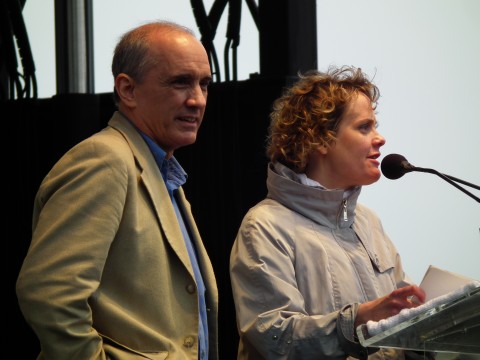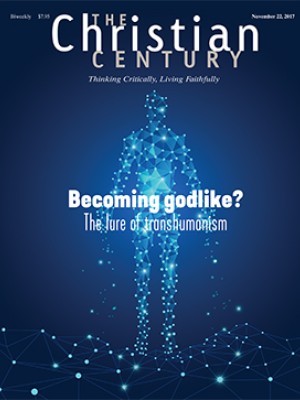Challenges arise to church-state separation and tax exemptions
The clergy housing allowance, school choice, and the Johnson Amendment are all under scrutiny.

(The Christian Science Monitor) When Dan Barker was a Pentecostal minister, he excluded his clergy housing allowance from his income tax returns.
Back then, he didn’t give much thought to this IRS benefit, which today gives religious leaders a tax break worth $800 million a year. Now, as copresident of the Freedom from Religion Foundation along with his wife, Annie Laurie Gaylor, his efforts are behind the ruling of a federal judge who declared this benefit a violation of the separation of church and state. The case is headed to an appeals court.
A growing number of people have questioned the reasoning behind various kinds of tax benefits religious groups have long received.
“There is a trend in the United States toward challenging the privileges that churches and other religious groups have enjoyed throughout the nation’s history,” said Lloyd Hitoshi Mayer, professor of law at the University of Notre Dame.
Several contentious church-state issues involving taxes loom, including the issue of tax breaks for school choice and voucher programs that in effect subsidize religious institutions and the future of the Johnson Amendment, which forbids tax-exempt religious organizations from participating in political campaigns.
Read our latest issue or browse back issues.
Part of the purpose of the “free exercise” clause in the First Amendment, many scholars say, is to create a special and unique place for religion in American life with limited entanglements with the government.
“We don’t have any more entangling relationship than the relationship between the taxpayer and the tax collector,” said Edward Zelinsky, a professor at the Cardozo School of Law and author of Taxing the Church: Religion, Exemptions, Entanglement, and the Constitution. “If the government taxes a church, that doesn’t separate them, it entangles them.”
The Supreme Court in 1970 affirmed the broader tax-free status of churches, saying “certain entities that exist in a harmonious relationship to the community at large, and that foster its ‘moral or mental improvement,’ should not be inhibited in their activities by property taxation or the hazard of loss of those properties for nonpayment of taxes.”
This has long been a principle in American society, both as a matter of jurisprudence and social policy, Mayer said.
“The view is that it is good to have religious organizations of all stripes in our communities,” he said. While both religious and secular groups offer services such as soup kitchens, congregations “also help everyone to be better, to be better neighbors, to be better community members.”
Yet many have begun to question whether religious groups have a “harmonious relationship to the community at large,” especially as some pastors become aggressively partisan. In recent years, religious conservatives have mounted an assault on the IRS’s Johnson Amendment. For the past decade, the Alliance Defending Freedom has sponsored Pulpit Freedom Sundays, a kind of civil disobedience in which pastors openly support political candidates from the pulpit, daring the IRS to revoke their tax-exempt status.
In fact, the IRS rarely revokes the tax-exempt status of religious organizations engaging in political advocacy.
Efforts to repeal the Johnson Amendment disrupt what has been a kind of social compact between society and nonprofits. “Essentially, it allows organizations a ‘double subsidy’ as both the financial donor can exempt their donation from their personal tax obligation, and the recipient nonprofit is also not taxed on the gift,” said Justin Dion, professor at Western New England University School of Law.
So the IRS policy serves a useful purpose, Zelinsky said.
“We really don’t want churches and other tax-exempt institutions being used to funnel tax-exempt money into politics,” he said. “On the other hand, I think the ministers who argue that the Johnson Amendment unfairly inhibits their internal communications and their First Amendment rights are correct.”
In Congress, lawmakers have introduced a “fix” to the Johnson Amendment allowing pastors to exercise their free speech while limiting the amount of money that could be used when supporting political candidates.
In the debate over school choice programs, arguments have focused on public versus private funding, said Mark Goldfeder, a senior fellow for the Center for the Study of Law and Religion. There are already 17 U.S. states that have created versions of “scholarship tax credit programs,” which allow individuals and corporations to set aside a portion of the state taxes they owe and donate them to nonprofit organizations that issue scholarships to grade school and high school students.
“They take religion out of it,” said Goldfeder, who notes that such programs have already passed constitutional muster. “So we’re no longer focusing on the religious-secular distinction.”
In the recent Trinity Lutheran case, the Supreme Court ruled that governments could not exclude religious organizations from taxpayer-funded grants offered to any other organization, so long as the grant served a secular purpose.
To Barker, who calls himself a strict separationist, his lawsuit related to the housing allowance exemption is about fairness.
“If all of the leaders and CEOs of nonprofits, if all of us were getting the same break, then we wouldn’t complain,” he said. “I used to get it when I was a minister, but now that I’m working for FFRF, I don’t get it anymore, so the government is picking favorites and giving the benefit to one group, as if the clergy were somehow on a higher level or special class of citizens from the rest of us.” —The Christian Science Monitor
A version of this article appears in the November 22 print edition under the title “Challenges arise to church-state separation and tax exemptions.”






